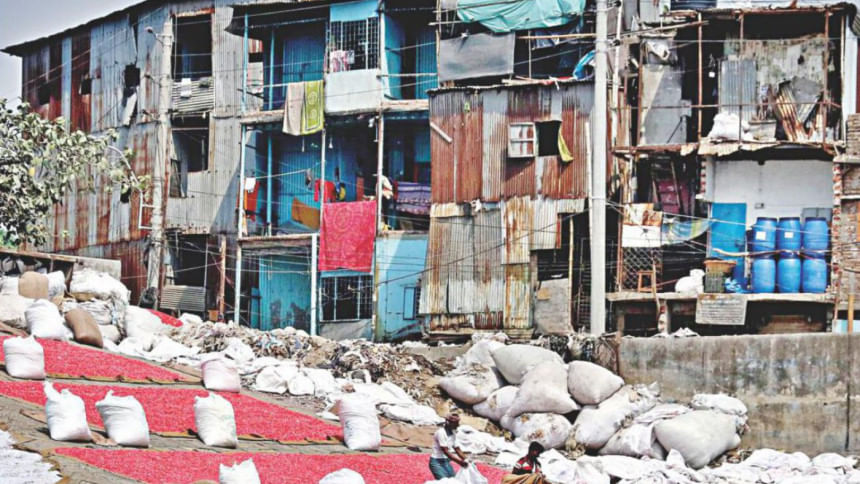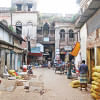Disasters waiting to happen

A picture published by this newspaper yesterday of rickety three-storey buildings on the banks of the Buriganga river in the capital exemplifies another disaster in the making. These informal structures built of corrugated iron sheet, bamboo and metal pipes are inhabited by around 40 families. Needless to say, these structures are prone to disasters, putting these families at grave risk.
So, how were these structures allowed to be built in the first place? Certainly, these did not sprout up overnight. From the look of it, utility lines are also available for these buildings. And previous experience suggests that the likelihood of some influential person profiting from this settlement is very high.
But past actions taken against such informal structures, especially in the wake of disasters, do not give hope either. They are not sustainable. The capital city has a large percentage of people living in informal settlements, and in the complete absence of rehabilitation and social housing projects, eviction drives only serve to displace the issue from one site to another. Certainly, the families residing in these structures are aware of the risks and are only doing so because of lack of alternatives. The high costs of living in Dhaka too put formal housing beyond most of their means.
This is an issue that cannot be solved through indiscriminate eviction drives. Neither can it continue because of the immense risk that living in these structures entails. We need social housing projects for rehabilitation of our informal settlers—low-cost housing options must precede any action. So far, the issue has been skirted around by our authorities. We urge the administration to undertake social housing and rehabilitation projects for a sustainable solution, so that low-income segments of the population do not have to resort to rickety unsafe structures for establishing their fundamental right to shelter.

 For all latest news, follow The Daily Star's Google News channel.
For all latest news, follow The Daily Star's Google News channel. 








Comments